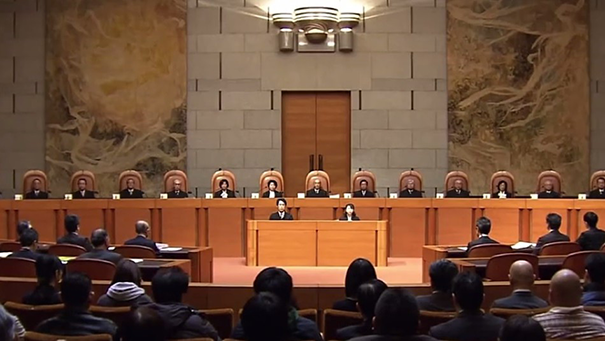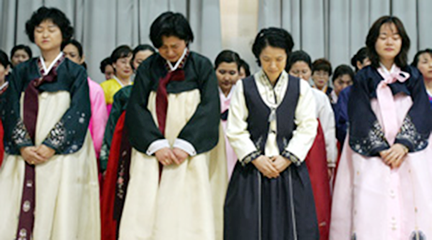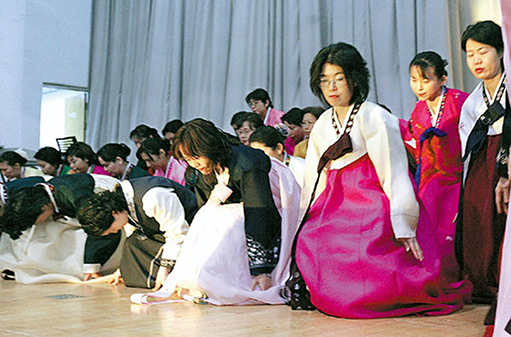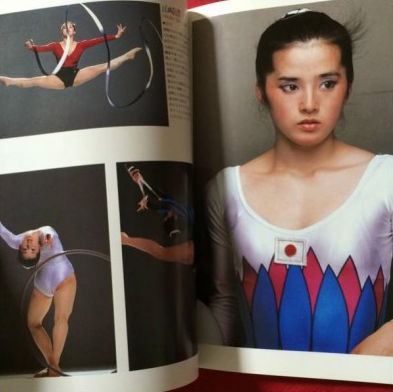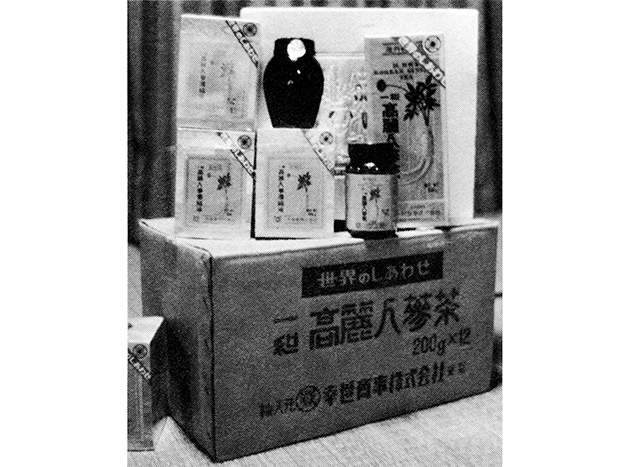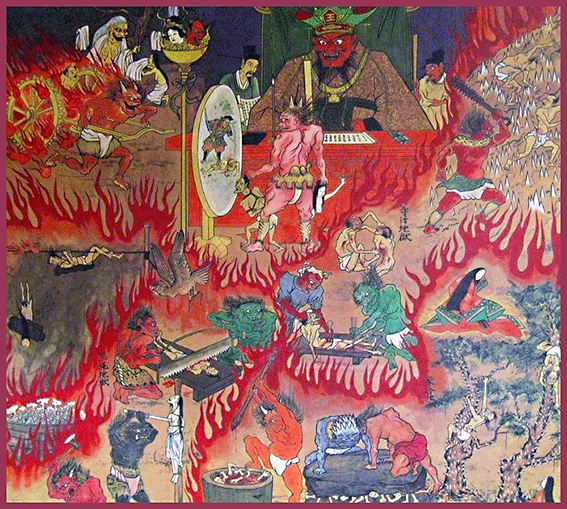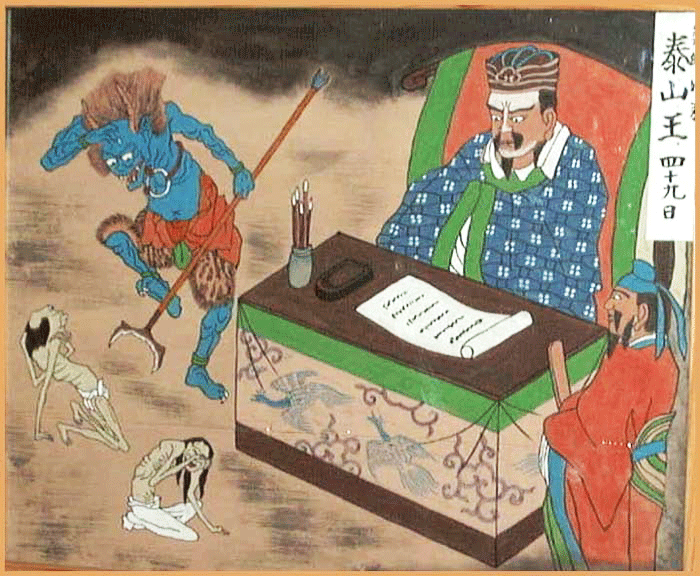Japan High Court judge upholds “Unification Church (FFWPU) used members for profit, not religious purposes.”
Updated September 18, 2022
This has serious ramifications.
The Unification Church of Japan (which now calls itself The Family Federation for World Peace and Unification) is worried about the legal implications of the judge’s 2015 statement, which was upheld on appeal at the High Court.
This could set a precedent for other former UC members who are seeking compensation for the donations they gave, or the time they worked for the UC without pay, or for damage to their physical health, etc.
The members were recruited for religious purposes, but used for profit.
The FFWPU was ordered to pay $321,400 to the three former members.
The FFWPU/UC of Japan have decided NOT to appeal again.
Translated newspaper report:
Mainichi Shimbun, October 17, 2015 (Hokkaido morning edition)
Lawsuit by former Unification Church followers who were harmed: Appeal court upholds “illegal solicitation” ruling in case against the Unification Church.
The first trial was held at the Sapporo District Court [in March 2014]. Following that, on October 16th in the Court of Appeal at the Sapporo High Court the ruling was given in favor of the three former followers. The The presiding judge, SATO Michiaki, said they were forced to make donations through [the UC doing] illegal solicitation [and exploiting the members]. The former followers sought damages from the Family Federation for World Peace and Unification (previously the known as the Unification Church). The FFWPU/UC was ordered to pay a total of ¥38,500,000 ($321,400 US) to the three former followers in Sapporo and Tokyo. [The Japanese text stated about ¥38,000,000]
It was pointed out that [at the earlier trial at the District Court] in March last year, “the judge determined the missionary activities of the (former Unification Church) followers, which included donations and unpaid sales activities, was for profit. Profit was the inferred purpose [of the FFWPU/Unification Church]. It was not for religious purposes, and that was unfair.” Mr. Sato, the presiding judge at the High Court, also upheld this decision.
(The Japanese text is below.)
https://mainichi.jp/english/articles/20220913/p2a/00m/0na/018000c
Unification Church had $210 mil. annual donation target in Japan: ex-top official
September 13, 2022 (Mainichi Japan)
TOKYO — A former senior official of the Unification Church, who belonged to the religious group’s headquarters for around 20 years before leaving in 2017, told the Mainichi Shimbun that the group set an annual target of collecting donations in Japan totaling around 30 billion yen (about $210 million), which put immense pressure on followers to meet quotas.
Masaue Sakurai, 48, was the deputy director of the family education bureau at the Family Federation for World Peace and Unification, better known by its former name, the Unification Church. He responded to a Mainichi Shimbun inquiry in a rare case where a former executive exposed the group’s internal affairs while revealing their real name.
Sakurai condemned the group’s stance, stating, “The group’s methods clearly went against social morality, and the collection of donations through coercion continued even after 2009, which is when the group claimed it enforced adherence to laws and regulations.”
Sakurai is a second-generation follower whose father served as the fifth president of the Japanese branch of the Unification Church between 1995 and 1996. He began to work at the headquarters in 1998 after graduating from college, and devoted many years to offering support and education for second-generation followers. In 2017, he released a document that raised objections to the Unification Church’s administration policy and left the group. He told the Mainichi Shimbun that “the group now shows no signs of improving its characteristics. I’d like to raise my voice as someone who knows the inner workings so that a tragedy is not repeated.”
During consultations with the children of Unification Church followers, Sakurai apparently met many people who said that their parents’ donations triggered a collapse in family finances, and interfered with their daily lives and academic careers. He encountered many cases where second-generation followers faced issues of parents creating debt with credit cards under their children’s names, becoming unable to confront relatives as their parents have borrowed excessive amounts of money, and shouldering debts on behalf of parents.
Eventually, Sakurai began to receive consultations from the parents of second-generation followers. A top official of a church under the group, who even donated their son’s part-time pay which he earned to cover his college tuition, said, “I did something I should not have done as a parent,” and expressed grief over the reality of being pressured to meet donation quotas.
The Unification Church upholds the doctrine that members will be saved by making donations. Sakurai also heard from a follower that once they open up about family or religious issues, they were immediately asked to make donations.
In a July press conference, Tomihiro Tanaka, head of the Japanese branch of the Unification Church, insisted that he saw to it that improvements and guidance have been carried out toward “spiritual sales” — a deceitful method to persuade people to buy goods — since 2009, when a follower was nabbed for allegedly making others buy expensive seals and other items by stoking anxiety. However, Sakurai recalled the time and said, “The group’s characteristics did not change.”
He stated, “Instead of sales of goods to external parties, it just changed its approach to force insiders (followers) to make donations.”
“Everyone on the inside knew about the absurd quotas for donations. However, viewing the donations as a problem was deemed as a sign of faithlessness, and there was an atmosphere that made it difficult to voice it,” he said.
According to Sakurai, donations consisted of periodic types in which 10% of followers’ salaries were offered to the group, as well as “special donations.” For special donations, after the time frames and target amounts were decided, the headquarters assigned quotas to regional chapters.
“Under the system, the regional bodies relay quotas to the parish below them, which are then relayed to the churches. President Tanaka said in the July press conference that there are no quotas for followers, but there is no way that he is unaware of the structure in which quotas toward the church will ultimately be imposed on individual followers. The headquarters should have also been aware of the quotas for each church, as well as their achievement rate,” said Sakurai.
When churches were unable to fulfill quotas, the special donation period was extended. Each church had a grasp of the status of followers’ assets through other followers who were tasked with collecting money, and if relatives held ceremonial occasions, donations were apparently demanded on the pretext of giving offerings.
Sakurai revealed, “Since around the late 1990s, the teaching that offerings and blessings toward ancestors are necessary to atone for past sins, which did not exist as part of the original doctrine, has been spread, and it was frequently claimed that donations were necessary to achieve this. After manipulative tactics of ‘spiritual sales’ emerged as a problem, instead of selling and buying goods, the church began to gift tower figurines and prayer documents in return for large donations.”
(Japanese original by Shota Harumashi, Tokyo City News Department)
Japanese women, full of shame and guilt for their country’s crimes against Korea, prostrate themselves on the ground.
[The 60 women who have accepted Korean husbands] are allowed to wear the clothes of heaven [the heavenly country of Korea]. Tokyo, March 2005.
Some of you may think that “it’s just that some stupid women got deceived,” but it isn’t that. What is frightening is what happens after.
The Unification Church deceives the women and pushes [obliges] them to get married and to have children. (They put them in a situation where there is no going back.) All this is to trick the women into soliciting their parents and relatives to become followers or to give money – because it is difficult for people to sue their relatives.
Many of the rich young men and women are naïve. The way of the Unification Church is to tailor fish hooks out of them by deceiving them. The UC can then, without getting their hands dirty, get the parents’ money on these hooks.
It is clever.
Unification Church Tied To Sales-fraud Scheme In Japan
by Frank Greve, Philadelphia Inquirer Washington Bureau
December 20, 1987
WASHINGTON — A 53-year-old Japanese widow with two daughters paid about $66,000 for a miniature marble pagoda worth $3,000.
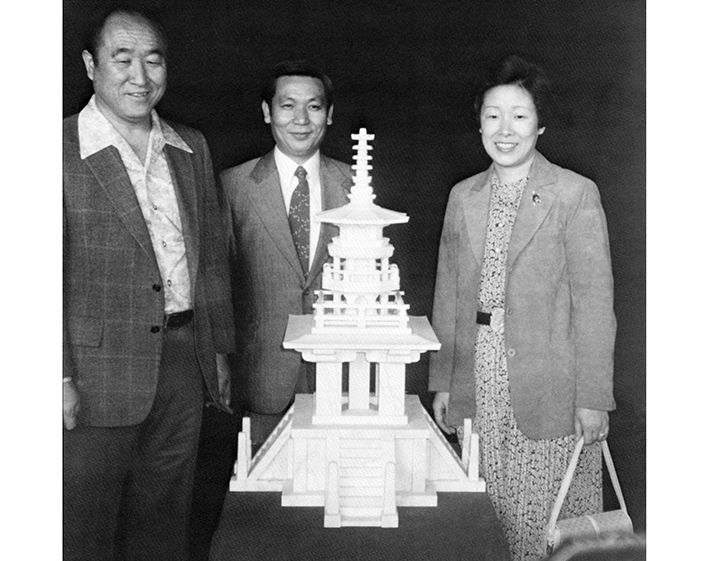
▲ Sun Myung Moon and Hak Ja Han with a pagoda. The caption was: “Father and Mother with marble sculpture made by our Korean family and sold in Japan.”
The pagoda would ward off the family curse that had caused her husband to die young, the salespeople told her. If she did not buy, they told her during the four-hour session in their closed room, a relative soon would die in a traffic accident.
Later, the salespeople came back for more, according to a scathing 41-page report by a Japanese bar association committee on a sales-fraud scheme sweeping Japan. “Your family’s karma is very heavy. Your husband is still suffering,” the salespeople told the widow.
A daily cup of ginseng tea would appease the angry spirits, the salespeople said, charging the widow $50,000 for enough ginseng concentrate to do the trick.
The widow has lots of company. Since 1980, the Japanese sales-fraud scheme has claimed at least 14,579 victims and $165 million, according to the report issued in July by the Japanese bar association’s consumer problems section.
The pagodas, urns, rosaries, seals and ginseng sold all were produced in South Korea and sold in Japan by companies owned or controlled by what the bar panel tactfully termed “a certain religion.”
That “certain religion” is the Unification Church of the Rev. Sun Myung Moon, acknowledged John Biermans, spokesman for the church in the United States.
The scheme helped Japanese followers of Moon contribute as much as $800 million to subsidize Moon’s U.S. enterprises, according to Yoshikazu Soejima, a Japanese journalist who split from Moon in 1984.
Biermans blamed “communists” in the Japanese press and bar for distorting what he described as “part of the valid spiritual experience of the Unification Church in Japan.” He said investigators ignored “hundreds of thousands” of satisfied customers, including some who “experienced miracles.”
Japanese followers of Moon may have subsidized U.S. church investments, he added, but “we do it as independent people, not as part of our religious activity.”
The bar’s consumer lawyers rejected a similar argument, finding that Unification Church leaders were the manufacturers, exporters, importers, wholesalers and retailers of talismans and ginseng sold in Japan.
In addition, the salespeople – 3,000 of them, by Soejima’s estimate – live in church-owned group homes, use identical sales forms and employ a common distribution system, the report said.
The bar’s panel, after studying the complaints, found salespeople generally used the same tactics learned from a common sales manual, “Your Honey Talk.”
“Your Honey Talk”
A chapter called “Finding Your Customer’s Weak Point” instructs salespeople to first, without admitting they are selling anything, find an anxiety in the prospect.
Many victims, for example, said salespeople used free palm readings to introduce questions such as, “Do you have a terminal illness?” or “Is your family not in harmony?” Some victims were simply told, “You will become seriously ill when you are about 40. It will probably be cancer.”
Responsive prospects, mostly older women, were escorted by the salesman to a church “spiritual center” to discuss their aroused anxieties with “a great teacher.”
The teacher, his eminence plain from the salespeople’s showy deference, generally ascribed the misfortune to restless ancestors, according to the report. “Your eldest son will die because the spirits of your ancestors are not at rest,” is one reported example.
Next, the teacher is said to have told customers, “In order to break the bad karma and save your family, you must become a monk or a nun to appease the spirits, or you must give up your property.”
Inevitably, the last option was to “buy this product.” It might be a personal seal, rosary, funeral urn or pagoda made by the Unification Church’s Il Shin Building Stone Corp. in South Korea. Or it might be ginseng from the church’s Il Hwa Corp. in South Korea, according to the report.
To resistant customers, sales teams often showed “videotapes of the calamities which befell people who didn’t buy,” according to the consumer lawyers’ panel.
Normally the pitch lasted three hours. Many were longer. As one victim put it, “Continuous persuasion from four in the afternoon until midnight broke my resolve, and I agreed to buy a funerary urn.”
Once a customer yielded, salespeople moved fast, according to the bar’s report, escorting her to her bank, overseeing the withdrawal, and sealing the deal. To subvert cooling-off periods provided under Japanese law, buyers were told that the charms they bought would fail unless kept secret.
Despite strong Unification Church efforts to dissuade victims from suing, recorded consumer complaints add up to more than $165 million in what the bar panel terms “a well-organized nationwide campaign of fraud and trickery.”
That is but a small fraction of the take, the report concludes, because “insecurity and fear have kept the vast majority of victims from coming forward.”
The Ungodly Gains Of The World’s Greediest Church
[ The cash that built the Moon organization’s “foundation.” ]
Sydney Morning Herald May 7, 1993
by Ben Hills
The Unification Church of Japan stated: “We do not participate in profit-making activities.”
“I don’t feel embarrassment … deep remorse is a better word,” confesses Kiyoharu Takahashi, blinking furiously behind his black-rimmed eyeglasses.
For 400 years, a small plot of land on the urban fringe of Tokyo had been in the family, once retainers of the local daimyo (lord of the manor).
Five years ago, Mr Takahashi, then a university student, aged 26, persuaded his family to take out mortgages over the property. Although there is less than a hectare of land, it contains the family home, a turf farm, a rented house and two blocks of flats.
Even so, it still amazes Kiyoharu how much the banks were prepared to lend on it. By the time the credit dried up, he had received $67.5 million, repayments had fallen behind and the banks were threatening to foreclose. Four centuries of family history were about to go down the drain.
What caused this calamity ?
Every cent of the money – plus another $500,000 or so in savings that the Takahashis had put aside over the years – was handed over to an organisation Japanese are starting to call the greediest church in the world, the Holy Spirit Association for the Unification of World Christianity, known to the less devout as the Moonie church.
Its founder and Pope is the Reverend Sun Myung Moon, a 73-year-old, thrice-married father of [more than] 13 who now lives in the United States, where he has done time in prison for [document fraud and] tax evasion.
Although he is better known for his mass marriage spectaculars – last year he hired the Olympic stadium in Seoul to celebrate the wedding of 30,000 followers, most of whom had never met each other before – Moon has spent the last 40 years building up a formidable religious multinational.
And Japan is the place where Moon Industries Inc, a conglomerate that trades under more than 100 corporate identities, has made its most spectacular, and some would say ungodly, gains.
Young Mr Takahashi is only one of 8,350 people who have come forward, claiming they have been ripped off by the Moonies, since a national legal network was set up to help them get their money back six years ago. The total amount they claim to have been cheated out of is a staggering $568 million. Cases are listed in more than a dozen courts.
Many of them, like Mr Takahashi, say they have been blackmailed into borrowing beyond their means, then handing the money over. In his case, barely credibly, he was told that his father’s Parkinson’s Disease was due to an ancient curse which could only be lifted from the family by prayer … and enormous amounts of money.
Another reformed Moonie – “Tomiko” is a 34-year-old English teacher from Tokyo – was told her lack of luck in love was because of the “dirty” money which she had saved. She took her life savings, $5,000, to a flat where the Moonies sprinkled salt in the four corners of the room, said prayers, and made it all disappear.
“Unfortunately, Japanese seem more susceptible to this sort of thing than people in other countries,” says Hiroshi Yamaguchi, a member of the lawyers’ network, who is handling cases for 25 former Moonies, including Takahashi, Tomiko, and a woman in Australia who was swindled out of $12,000.
People are being enticed into a range of activities which have no overt connection with the Moonies.
There are about 100 Moonie-owned “video centres” around Tokyo where people are invited in and then recruited.
Another favourite ploy is to organise conferences by front organisations, such as the World Peace Professors’ Academy, the Society of Field Flowers, the Japan-Korea Tunnel Task Force and even the Women’s Federation for World Peace, which last year held a meeting at Sydney’s Ritz Carlton Hotel.
No-one knows how many followers the Reverend Moon has attracted since he went international in the mid-1960s. He claims five million followers in 160 countries (including Australia) but a more realistic assessment by former members of the cult is around one-tenth that number [possibly at the zenith – now many fewer].
Even so, Japan – where there are thought to be around 20,000 hard-core Moonies – is beyond doubt one of the most profitable parts of his empire. Or was, until the recent deluge of bad publicity.
Tokyo’s tabloids have been agog for a month over the disappearance of Hiroko Yamazaki, a 33-year-old former Olympic gymnast, who has provided the church with acres of publicity since her marriage at the mass-wedding in Korea last year to a groom selected for her by the Rev Moon.
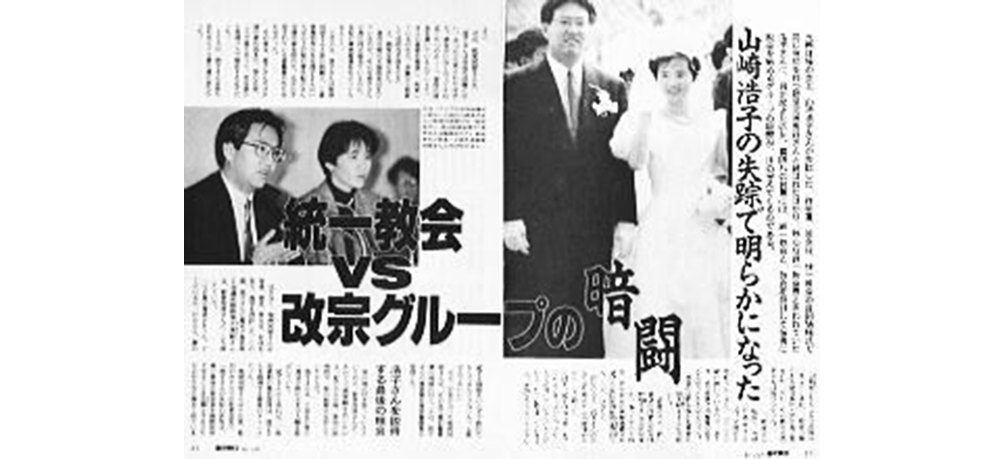 She reappeared, renouncing the church and claiming it had all been a terrible mistake.
She reappeared, renouncing the church and claiming it had all been a terrible mistake.
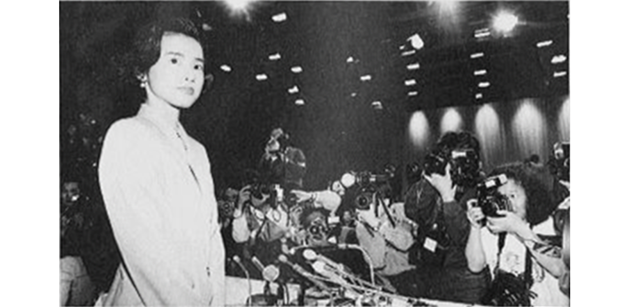 ▲ Hiroko Yamasaki facing nearly 200 journalists in April 1993.
▲ Hiroko Yamasaki facing nearly 200 journalists in April 1993.
After being indoctrinated the converts are put out on the streets of Tokyo to bring in other recruits, and to make money selling products door-to-door.
Mr Takahashi displays some of the products he was obliged to sell. There is a 300-gram jar of extract from Korean ginseng (a parsnip-like root which tastes a bit like tobacco and is reputed to be medicinal) – this sold for $1,000, when the over-the-counter price in Korea is about $150. The Reverend Moon’s Il Hwa factory near Seoul is South Korea’s largest ginseng processor.
A set of three name-seals, worth about $125, is sold for up to $15,000. All Moonies dream of selling the jewelled pagoda – a model studded with what look like bits of glass that goes for $67,500.
After her conversion, Tomiko became a real cash cow. Even though she had no property to put up as collateral, she borrowed more than $50,000 from eight different banks and handed it over. She sold her family a garage full of Moonie products – her mother paid $20,000 for a kimono, her father $8,000 for a sauna, among other things. “I became a saleswoman … they said it was the way to achieve heaven on earth.”
Gullible? Perhaps. But 8,349 more like her? Sadao Asami, professor of theology at Tohoku University, believes that there is something about the Japanese that makes them more susceptible to Moon’s brand of religion.
Professor Asami has earned a nickname, “the Devil’s priest”, from the Moonies because of the help he has given hundreds of families, “rescuing” their children from the Moonies. He has worked with 500 to 600 former followers. He says that Japanese remain dependent on their parents much longer than people in the West, and that they are thus more immature. As well, the Japanese culture entertains a variety of religious and superstitious beliefs.
They also, says Mr Yamaguchi, have a lot of money.
Until recently, the Tokyo Moonies have been trying to quietly settle most of the claims out of court. However, in January, Michio Fujii, the head of the church in Japan, wrote to Mr Yamaguchi apologising for the “mismanagement of subordinates of the Unification Church” – but saying that repayment of money would be “temporarily stopped”.
This means that Mr Takahashi is in trouble. The church had repaid most of the money and had taken over repayments on the loans. But $3 million is outstanding. The Moonies’ headquarters is in the fashionable suburb of Shibuya, a three-storey building that occupies most of a city block.
Unfortunately, neither Mr Fujii, nor anyone else, was willing to put the church’s point of view on these serious allegations. They later sent an anonymous fax, denying everything and claiming bare-facedly: “We do not participate in profit-making activities.”
The Unification Church’s own publications boast of a global business empire valued in the hundreds of millions of dollars.
The core is the Sae-il engineering company, which began making air-rifles, and now manufactures machine-tools in Korea, Germany and Africa. Then there is the Il-Hwa company which produces more than 40 different pharmaceutical products, ginseng and soft-drinks; in Alabama, there is International Oceanic Enterprises which catches and packs seafood; in Alaska, the Master Marine company makes fibreglass fishing trawlers; the Moonies own the Paragon House publishing firm, the Washington Times newspaper and a four-storey complex in Barrytown, New York, where they run a theological seminary.
Although his worries are not over, Mr Takahashi – along with several thousand other former converts – is thankful to be out of it. And not to have to go through with the “marriage” he had in 1988 … along with 6,499 other couples. In a hall at a Seoul soft-drink factory, he saw his bride for the first time. “I had built up expectations of how beautiful she was going to be,” he says “When I saw her I got vertigo.”
Two of his fellow Moonies committed suicide. One, a middle-aged woman who was being pressured into handing over some land, jumped off a building. Another, a man who was married at a mass wedding, jumped in front of a car.
“At the time I believed in it,” says Mr Takahashi, “Now I know it was only blackmail and lies aimed at getting their money.”
Widow Pays Church to End Husband’s ‘Suffering in Hell’
by Kevin Sullivan, Washington Post Foreign Service
Sunday, August 4, 1996; Page A30
Atsuko Nakajima was about 40 when her husband died of heart disease in February 1988, leaving her with a young daughter to raise. During her grieving, a neighbor stopped by to offer her condolences.
According to her lawyers and court documents, this is what followed:
The neighbor was a member of the Unification Church, but did not mention that at the time. She suggested going to an art show to take Nakajima’s mind off her tragedy. At the show, she persuaded the widow to pay about $2,200 for a painting. It later turned out the painting was purchased from a company owned by Unification Church members.
Two months later, the church member told Nakajima that a “very famous teacher” would be speaking nearby and invited her to come hear him. When the widow met the teacher, he began crying and trembling. “Your husband is descending. I can see your husband’s body suffering in hell. I cannot stop myself from shaking. Your husband is saying he wants you to donate” $50,000.
When Nakajima resisted, the teacher told her, “If you delay your answer, your husband’s body suffering in hell will appear to you in your dreams. You had better decide soon.” Nakajima paid the money.
Several weeks later, the church member and other church members told her that her husband was still suffering in hell. They persuaded her to help him by purchasing a small holy statue and two pairs of prayer beads for about $70,000. She bought a set of signature stamps, commonly used in Japan instead of a handwritten signature, for another $2,000.
She had turned over a total of about $124,200.
In June 1988, four months after her husband died, Nakajima went with several church members to an apartment, where she met a man who appeared to be praying. He told her: “Your husband is suffering in hell. Your husband desires [about $500,000]. But your husband says that at the least he wants you to donate [about $300,000].”
Nakajima replied that if she paid that much, it would drain the remainder of her husband’s life insurance payment. She said she needed the money to send her daughter to college. She was told that her husband died because of bad karma from his ancestors and that if she did not donate, her daughter’s life would be shortened by the same bad karma.
Fearing that the church members would never leave her alone, Nakajima relented. She turned over the cash to a church member who told her the money would be used in a Unification Church project to build a tunnel between Japan and South Korea. At a party at a Unification Church to celebrate her donation, she received a photograph of the Rev. Sun Myung Moon and his wife.
In 1989, Nakajima hired lawyers to sue the Unification Church. …
For the full story, see:
http://www.washingtonpost.com/wp-srv/national/longterm/cult/unification/widow.htm
Translation to be proofed:
Tokyo District Court ordered FFWPU to pay 4.7 million yen compensation for illegal solicitation to a former member
February 29, 2020 Social trial
This lawsuit at the Tokyo District Court was filed by a woman in her 60s, who is a former member of the Family Federation for World Peace and Unification living in Tokyo. She alleged she had been illegally solicited by a member of the FFWPU (formerly known as the Unification Church) and had made a large donation to the organization. She sought damages of about 5.2 million yen.
In the February 28, 2020 ruling, Judge Shigeru Ito ordered the FFWPU and its followers to pay about 4.7 million yen in damages.
Judge Ito said, “Women continue to be made anxious and frightened by FFWPU members that their deceased husbands and eldest sons are suffering in hell, and requests for such donations are illegal acts which deviate from what are considered socially acceptable norms.”
The judge said the Family Federation had responsibility for the vicarious liability of its followers. [They were not acting independently, which is what the FFWPU usually assert.]
The Family Federation member [who had solicited the large donations] argued that they had refunded about 2 million yen to the former member before the proceedings, and that the former member had agreed she would not make any further claims.
However, the judge dismissed the FFWPU member’s assertion and ruled, “She did not confirm her intention to waive her claim without any explanation. It is invalid to accept that, and it is against the public order and morals.”
https://www.sankei.com/affairs/news/200229/afr2002290002-n1.html
旧統一教会に賠償命令 違法勧誘、東京地裁
2020.2.29 00:54 社会 裁判
世界平和統一家庭連合(旧統一教会)の信者から違法な勧誘を受けて多額の献金をさせられたとして、東京都に住む元信者の60代女性が約520万円の損害賠償を求めた訴訟の判決で、東京地裁は28日、家庭連合と信者に約470万円を支払うよう命じた。伊藤繁裁判長は「女性は信者から、亡くなった夫や長男が地獄で苦しんでいるとの不安や恐怖心をあおられ続けており、献金の要求は社会的に相当な範囲を逸脱した違法な行為だ」と指摘した。家庭連合には信者の使用者責任があるとした。
信者は約200万円を返金し、女性がその他の請求はしないとの内容で提訴前に合意したと反論したが、判決は「意思を確認せず、何の説明もなしに請求権を放棄させるのは、公序良俗に反し無効だ」として退けた。
http://mainichi.jp/area/hokkaido/news/20151017ddr041040008000c.html
統一教会損賠訴訟:旧統一教会側の違法勧誘認める 控訴審判決
毎日新聞 2015年10月17日 北海道朝刊
違法な勧誘で献金などを強いられたとして、世界平和統一家庭連合(旧統一教会)に元信者が損害賠償を求めた訴訟の控訴審判決で、札幌高裁(佐藤道明裁判長)は16日、1審・札幌地裁判決に続き、統一家庭連合に対して札幌や東京の元信者3人に計約3800万円を支払うよう命じた。[3850万円]
昨年3月の1審判決は「(旧統一教会による)伝道活動は信者に献金、無償の物品販売活動を行わせるなどして利益を獲得することが目的だったと推測できる。宗教的目的ではなく、不当」と指摘。高裁の佐藤裁判長もこの判断を支持した。
Huge FFWPU / UC scam in Japan is revealed
Shocking video of UC of Japan demanding money
Japanese woman recruited and sold by FFWPU to a Korean farmer
Why did a Japanese UC member kill her Korean husband?
Moon extracted $500 million from Japanese female members
Suicide of Moon money mule in Uruguay
How Moon bought protection in Japan
6,500 women missing from FFWPU mass weddings
Human trafficking of Flipinas by Sun Myung Moon’s church is despicable
A Korean church insider is ashamed and explains how Sun Myung Moon’s goal was to control all power, money, laws and rules, at least as much as he could. Moon wanted to set up himself and his family as a royal family governing as a theocracy – the tragic and shameful truth is that the Moon scam is paid for in blood, poverty, misery, sickness and death by a slave class of Japanese deliberately and cynically exploited. LINK

